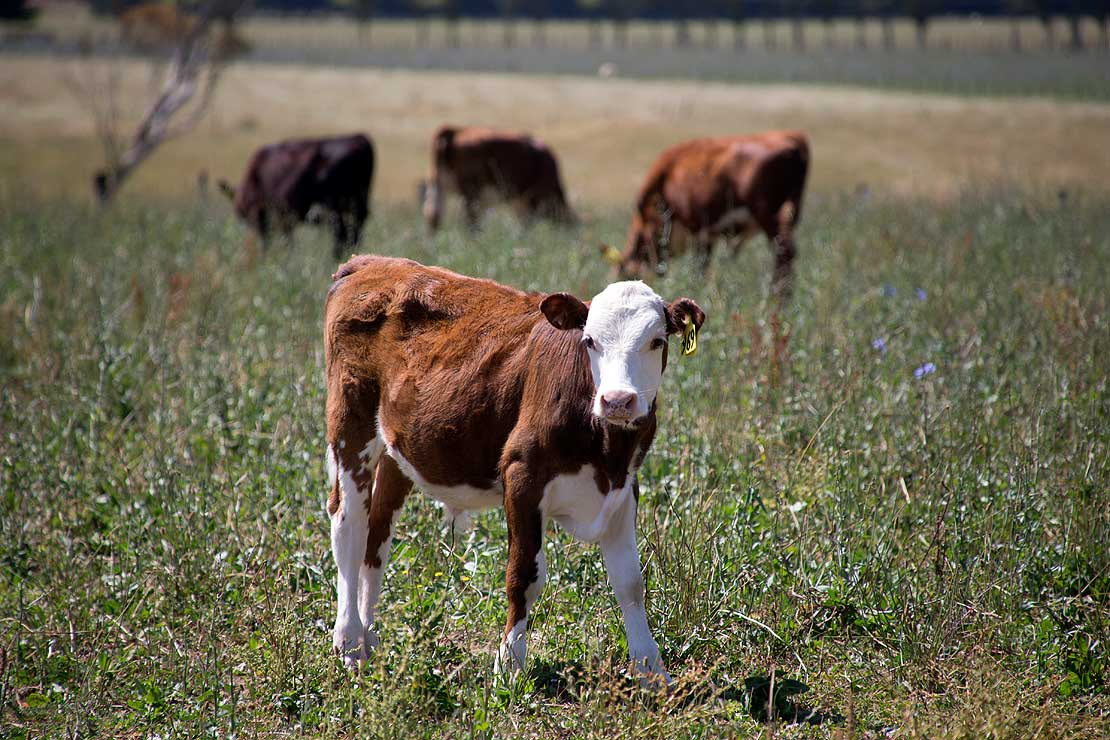A California study has found that feeding a red-algae supplement to beef cattle more than halved methane emissions, without compromising meat quality.
The largest reductions were found with a high seaweed-supplemented, low-forage diet, which lowered methane production by as much as 80%.
Cattle achieved normal growth rates while consuming less food, suggesting that seaweed-supplemented diets could help farmers improve efficiency, reduce costs, and reduce methane emissions all at once.
Livestock farming is a major source of greenhouse gas emissions worldwide because ruminants like sheep and cattle produce methane as a byproduct of digestion.
The study which found how supplementing the diet of beef cattle with red seaweed can reduce methane emissions without compromising meat quality was published this week in the open-access journal PLOS ONE, by Breanna Roque from the University of California and colleagues.
The researchers fed 21 Angus-Hereford beef bullocks their usual diet of hay, grains, and corn, supplemented with either zero, low, or high concentrations of red seaweed (Asparagopsis taxiformis).
They measured the quantity of methane, hydrogen, and carbon dioxide released by individual bullocks periodically for 21 weeks and found that seaweed supplements reduced methane emissions by between 45% and 68%.
The proportion of forage in the base diet also influenced emissions. The greatest reductions were found with a high seaweed-supplemented, low-forage diet, which reduced methane production by as much as 80%.
Professional grading and consumer testing revealed no effect on the quality or flavor of the meat.
The study is the first to show a sustained reduction in cattle greenhouse gas emissions as a result of feed supplementation. Bullocks also sustained normal growth rates while consuming less food, suggesting that red seaweed supplemented diets could help farmers improve efficiency, reduce costs, and reduce methane emissions simultaneously, the authors say.
“There is more work to be done, but we are very encouraged by these results,” Roque said. “We now have a clear answer to the question of whether seaweed supplements can sustainably reduce livestock methane emissions and its long-term effectiveness.”
The research can be read HERE.












